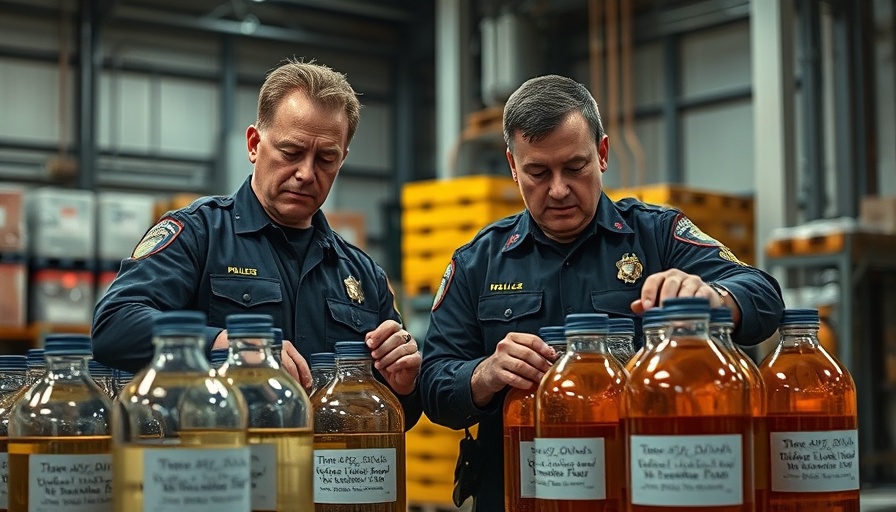
Counterfeit Whiskeys: A Growing Concern in Southern Africa
The counterfeit whiskey crisis sweeping through southern Africa, particularly Zimbabwe, calls for urgent attention. As smugglers bypass customs for mere bribes, what appears as Bushmills Irish Whiskey and other renowned brands is actually a dangerous imitation distilled in shadowy laboratories from neighboring countries.
Health Implications of Consuming Fakes
The alarming rise in counterfeit alcohol is not merely an issue of lost revenue for legitimate producers; it poses significant health risks as well. As these imitation beverages flood the market, they are becoming a popular yet perilous choice for the unemployed youth and those seeking cheap thrills. The low pricing is appealing, but the immediate dangers, like kidney health crises, addiction, and potential poisoning, reflect a devastating reality.
The Economic Impact and Market Risks
As counterfeit alcohol gathers momentum, established breweries—some of which are international giants—risk irreparable damage to their brands and market share. George Guvamatanga, chief director of Zimbabwe’s Ministry of Finance, highlights the looming risk that local subsidiaries of brands like Anheuser-Busch InBev face. If this trend continues unaddressed, long-term investments in these regions may dry up altogether.
Organized Crime's Role in Smuggling
As explained by Oliver Mandipaka, a former police inspector, organized criminal groups from tax havens have intruded into the southern African alcohol scene, establishing clandestine operations that parallel the legal framework. These syndicates exploit skilled chemists and local resources to create counterfeits that even professionals can mistake for authentic products. An urgent question arises: How do we mitigate this complex problem when external actors are literally reshaping the landscape?
Making Informed Decisions: What Consumers Need to Know
With an increase in the availability of counterfeit alcohol, consumers must stay informed and cautious about their choices. Understanding the risks associated with counterfeit spirits can be the first step toward avoiding health crises. Investigating brands, supporting local producers, and educating peers about the dangers can help shift demand back toward legitimate products.
Moving Forward: Strategies for Change
In light of these developments, stakeholders—ranging from government officials to consumers—must band together to formulate solutions that tackle the counterfeit crisis. This could involve stricter penalties for smugglers and more robust monitoring of import channels. Moreover, raising awareness and facilitating public discussions on the topic will also play a crucial role in shifting public sentiment against these dangerous imitations.
The counterfeit whiskey crisis illuminates the intersection of health, economics, and consumer responsibility in southern Africa. As the landscape shifts, it becomes paramount for authorities and stakeholders to adapt and respond proactively to safeguard both health and economics in the region.
For a future where consumers are protected and legitimate businesses can thrive, the call to action is clear: everyone must align efforts to combat alcohol smuggling and ensure safer consumption practices.
 Add Row
Add Row  Add
Add 




Write A Comment